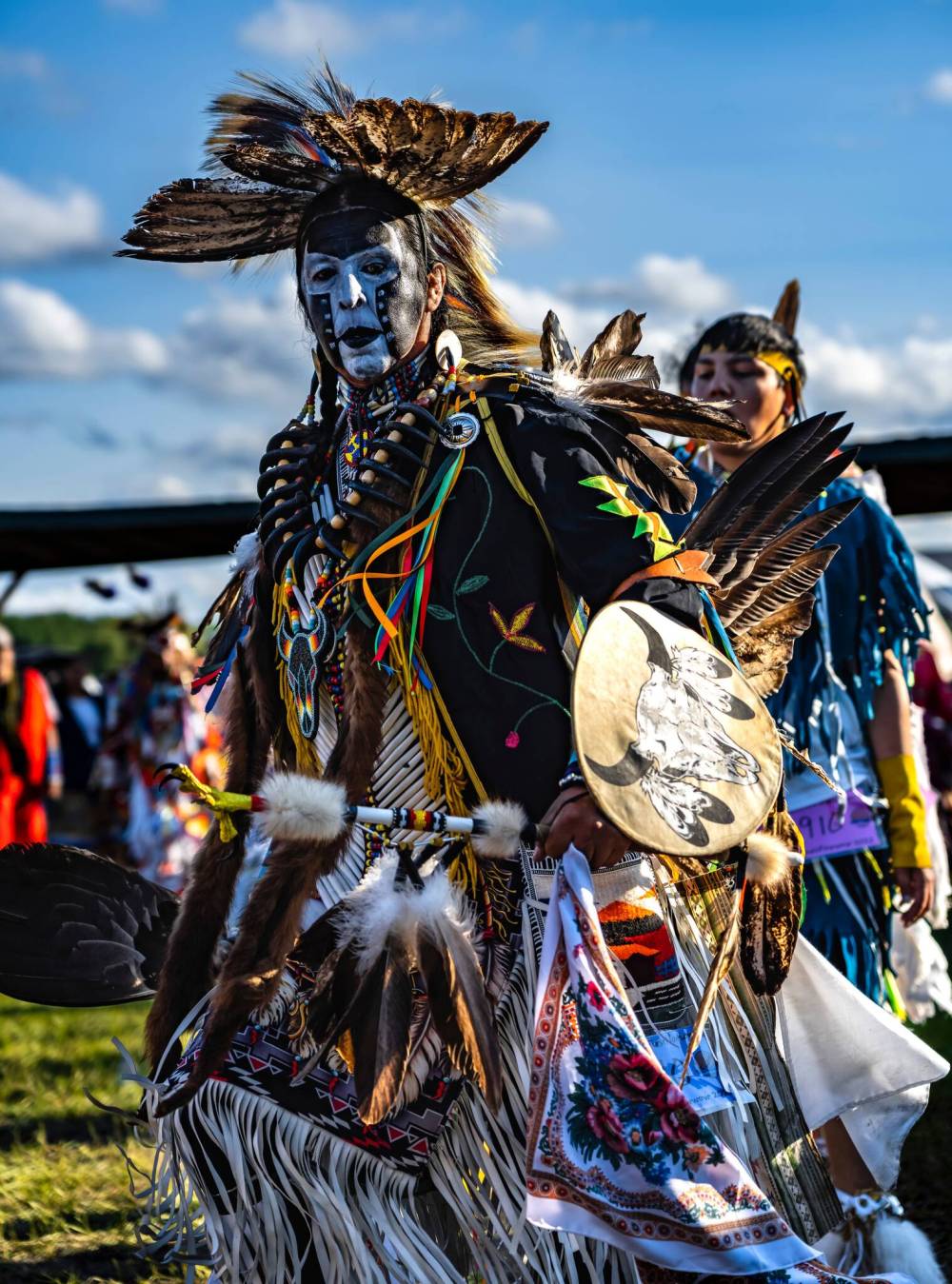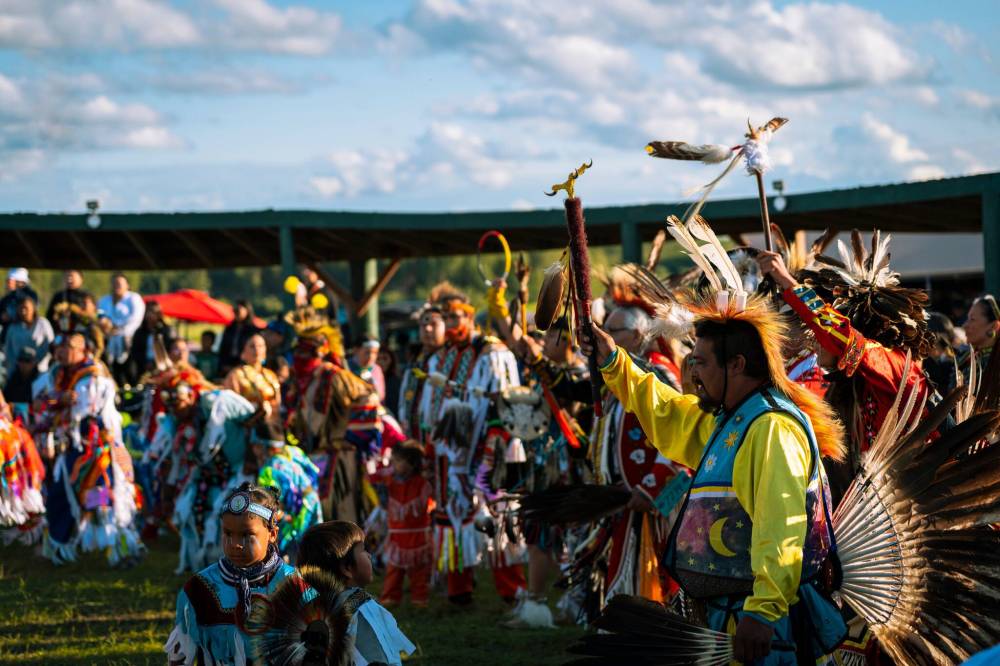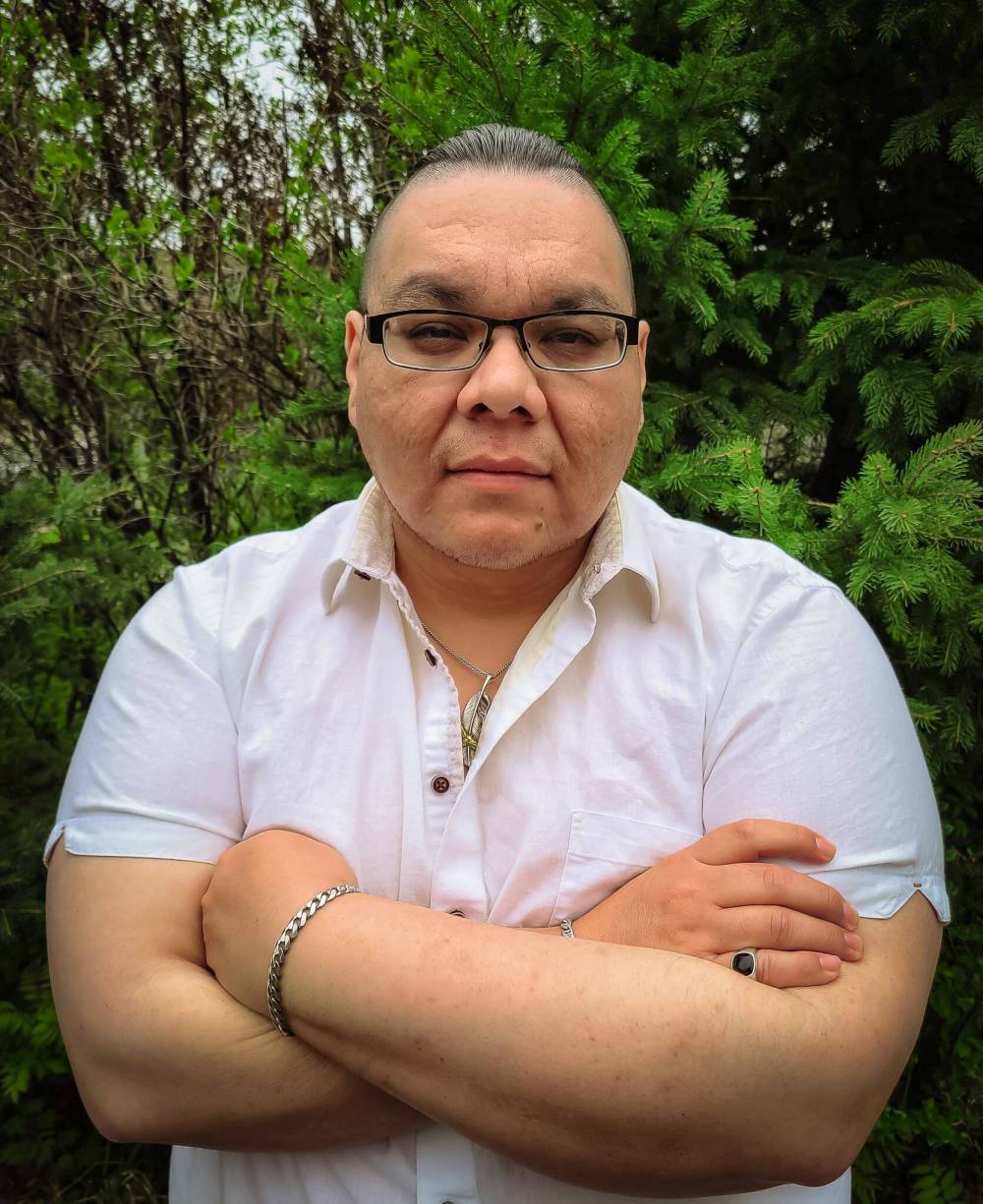Rolling River artist tells stories through poetry, photography
Advertisement
Read this article for free:
or
Already have an account? Log in here »
We need your support!
Local journalism needs your support!
As we navigate through unprecedented times, our journalists are working harder than ever to bring you the latest local updates to keep you safe and informed.
Now, more than ever, we need your support.
Starting at $15.99 plus taxes every four weeks you can access your Brandon Sun online and full access to all content as it appears on our website.
Subscribe Nowor call circulation directly at (204) 727-0527.
Your pledge helps to ensure we provide the news that matters most to your community!
To continue reading, please subscribe:
Add Brandon Sun access to your Free Press subscription for only an additional
$1 for the first 4 weeks*
*Your next subscription payment will increase by $1.00 and you will be charged $20.00 plus GST for four weeks. After four weeks, your payment will increase to $24.00 plus GST every four weeks.
Read unlimited articles for free today:
or
Already have an account? Log in here »
Hey there, time traveller!
This article was published 06/07/2023 (948 days ago), so information in it may no longer be current.
Mashikaydun, also known as Aaron McKay, has been on a homecoming journey. Turning to his culture, his ancestors and their history and spirituality, he has come to peace with who he is and what he wishes to do with his life.
The Rolling River First Nation member, who recently started a multimedia business called Giiwe Media, is now passionate about documenting the beauty and richness of Indigenous culture and other people who are on their own journeys home – home to their tradition, home to their culture, and home to themselves.
Mashikaydun was born to a mother from Swan Lake First Nation and a father who served with the Dakota Ojibwe Police Service. Shortly after he was born, he received his traditional name, which loosely translates to “the sound of a storm in the distance approaching.”

Mashikaydun, also known as Aaron McKay, attends powwows and other cultural events throughout Manitoba, capturing images of Indigenous culture for his photography company Giiwe Media. (Aaron McKay/Giiwe Media)
He remembers growing up in a home where he heard anishinaabemowin spoken at the kitchen table. The fond memories are punctuated by the intergenerational trauma that residential schools placed on his family — something he said is common in many Indigenous families.
“You have these two halves that are sort of guiding us — there’s that trauma, and then there’s that little bit of culture. And the culture sort of kept me personally from going to one side,” he said.
Although his family did face some difficult challenges, Mashikaydun said he and his siblings always had what they needed. When he was 10 or 11, and attended his first sweat with his grandfather, his father, and his uncle, it made a big impression on him. Unfortunately, when he hit the often-turbulent teenage years, Mashikaydun began to move in a direction that didn’t align with who he was on the inside, he said.
“When you hit those teen years, you’re going through all these changes. I had been living with things that hadn’t been quite dealt with yet, and I found that release in other avenues. I started to kind of leave the culture. It was still there, but its presence wasn’t as big.”
Dealing with intergenerational trauma led to Mashikaydun facing some mental health challenges of his own, which also had him turning to things that would eventually have a negative impact on his life, he said.
Still, the ambitious young man had big plans for his life. After graduating from Erickson Collegiate in 2009, he enrolled at Brandon University with the goal of becoming a teacher.
“The reason for that is because there was actually another teacher who inspired me and showed me that they cared for me and that they saw potential in me,” Mashikaydun said. “I decided you know what, maybe I can be that person for another youth.”
But going to university and leaving his home community straight after graduating proved a challenge for Mashikaydun. Calling it a huge “reset” in his life, he remembers not having access to things that felt familiar and the people that had supported him.
“I was just by myself. I was isolated. And so that first year was really rough on me. I was working a lot of stuff out of my system,” Mashikaydun said.
After struggling with his grades during his first year of university, he received correspondence stating that if he did not start improving, he would face suspension. Mashikaydun remembers feeling angry when he got the letter — an anger he directed at outside sources before finally looking inward.
“I remember, I just said, ‘How come you didn’t try hard enough? What could you have done differently?’ So, at the time, I was like 18 or 19, and that started my path to being responsible for my own actions,” he said. “Instead of being angry at the world … the only way that my situation was going to get better is if I pulled myself up.”
After that turning point, Mashikaydun applied himself with new zeal towards his studies. What was immensely helpful, he says, is when he ended up talking to an academic advisor who could tell he was struggling. Setting aside his worries about his grades and school performance, the advisor, who had a background in counselling, asked Mashikaydun how he was truly feeling.
“As cliché as it sounds, that opened up the floodgates,” Mashikaydun remembers. “I started sharing all this stuff.”
Mashikaydun’s positive experience with his university advisor led him to take the step of undergoing therapy — two sessions every week at first, and then, as he progressed in his healing, less frequently. As a result, his grades improved.
Graduating with a Bachelor of Arts, with a major in History and a minor in Native Studies, Mashikaydun went on to earn a bachelor of education, specializing in teaching senior high school students.
But soon after that, Mashikaydun felt as though something in his life was missing. He had been helping out here and there with different ceremonies but felt as though he wanted more.
“I’d sit around the sweat lodge and listen to the older guys talk and talk about the old days, or talk about spirituality and culture, and I started thinking that maybe that’s the piece I was missing,” Mashikaydun said.
Even though he wanted to fully embrace and enmesh himself in his culture, there was something holding him back — a feeling of being unworthy or unclean because of some of the choices he’d made to cope with his trauma, Mashikaydun said.

“Despite everything I had gone through, all that healing process, I still felt like I was a dirty person.”
One day when Mashikaydun was around 25 years old, he attended a sweat with his brother.
“I was talking to him, and he’s very blunt. I told him I want to go in [to the sweat lodge] but I didn’t feel clean. I felt like a dirty person. He said, ‘Well, that’s why you go in there — to get clean.’”
Once he found the courage within himself to enter the sweat lodge that day, Mashikaydun experienced another turning point in his life — one that would irrevocably reconnect him with the land, his culture, his family, his ancestors and his own spirit.
“That experience really encouraged me to share with others,” he said.
And while he acknowledges that it’s wonderful that people in today’s society are celebrated for achieving great things, Mashikaydun says he felt a calling to share the stories of people who were still on — or just starting out on — their journeys.
“I feel like that’s a colonial view, that you’re only worth celebrating if you’ve managed to accomplish something big,” Mashikaydun said. “What I’ve seen is even if you’re just waking up in the morning, for some people, that’s an accomplishment.”
To start, Mashikaydun decided it was time he told his own story, which is all about home. He began sharing his thoughts and feelings through poetry, something he always had a love for. Through that, he realized how many other homecomings he had been making throughout his life.
“My story is home. I am my own home. This land is my home. My culture, my spirituality is my home,” he said.
In 2020, Mashikaydun began telling the story of himself and others through photography, opening up Giiwe Media. Much like poetry and writing, he had always been interested in his photography. He remembers his grandfather and grandmother buying him a Polaroid camera when he was in kindergarten, and Mashikaydun recalls being absolutely enamoured with the idea of being able to capture a moment in time forever through a photograph.
“As a kid I remember thinking that the world was stopping when I had a photograph, a physical memory,” he said.
Mashikaydun began to attend sweat lodge ceremonies and spoke to elders, learning as much as he could from them. It was a bittersweet thing, he remembers, especially when he realized that many of his elders, who carry a wealth of knowledge about their culture, spirituality, and way of life, wouldn’t be around to share their stories forever.
“I was attending a ceremony that one of my grandfathers was holding, and he stood there in the circle with us. There were quite a few guys that he was standing in a circle with. He held an eagle feather, and he was addressing us, saying that this would be his last year. At the time, he was the only one I knew who would host that kind of ceremony, and my immediate thought was, it’s disappearing. It’s leaving. And this may very well be the last one I ever attend,” Mashikaydun said.
That experience and his grandfather’s words made Mashikaydun ponder on the future of the youth of his community — the students in elementary and high school. In his late 20s, he didn’t see any people younger than himself attending the ceremonies, which made him worry about the future of his community.
“It scared me, honestly,” he said. “I started wanting to learn as much as I could, so that way I could pass information down to the next generations.”
That is what Giiwe Media is all about, Mashikaydun says. During the pandemic, he focused on building his photography skills and building his brand. He added various cameras to his collection.
Since then, Mashikaydun says he has been inspired by the stories he’s heard from other people — especially from young Indigenous people that are beginning their healing journeys, and on the reconciliation that individual stories point to on a larger scale throughout the country.
“I definitely think that there is a healing that’s starting to take place. It’s the start of something. Something big is coming. I don’t know exactly what it is, but I feel it’s a good thing,” he said.

What Mashikaydun hopes that non-Indigenous Canadians will come to understand — and one of the messages he hopes to convey through his poetry and photography — is that Canada is not just the physical home of Indigenous people but the home of their history, identities, language and culture.
“We have our bloodlines and memories attached to this land. This is our home — and that’s not to exclude anyone who is of European or settler descent — but people have to understand that this is somebody’s home,” he said.
Reminiscing on the powwow that took place on June 21, National Indigenous Peoples Day, in his home of Rolling River First Nation, Mashikaydun said he was pleased to see how many people of different cultures and backgrounds came to experience Indigenous culture, and how welcoming his community was of people at the event, regardless of where they came from or what they looked like.
While no First Nation is the same, and experience can vary from community to community, Mashikaydun says inclusivity is a big part of how Indigenous people are raised.
“I remember a few years ago, an elder speaking, and he pointed out to the highway to the cars that were driving by. He said ‘Someday, our brothers and sisters will come here, and they will want to learn from us. They will come here both for help and also just to learn. I hope that they come soon. We will welcome them with open arms.’”
In addition to his work with Giiwe Media, Mashikaydun has partnered with Izzeddin Hawamda, the founder of Gaser-Bridge, an interfaith dialogue group that works to promote awareness, dialogue, and empathy-building regarding Israel and Palestine. “Gaser” means bridge in Arabic and Hebrew.
Together, Hawamda and Mashikaydun are working on a series called “Unbound Stories,” which builds empathy by connecting stories from two different worlds, unearthing the commonality shared by people and bringing humanity and empathy towards all people through the exchange of stories.
Mashikaydun met Hawamda, whom he calls his brother, through a mutual friend who had a goal of bringing a meaningful and impactful event to the public.
“I shared my experience as an Indigenous man displaced from my ancestral home and how I was viewed and treated as a lower being. There were commonalities in our stories, with Izzeddin being a Palestinian man displaced from Palestine,” he said.
As Mashikaydun and Hawamda’s journey progressed, they eventually had other storytellers join them and brought a storytelling event to the public in early 2022 via Zoom. Their latest event together was in February 2023 at the University of Manitoba.
Mashikaydun says he and Hawamda have plans to bring another Unbound Stories event and workshop to the public in September under Gaser-Bridge and Giiwe Media.
Whether it’s through his photography, poetry or through working with his friend on Unbound Stories, McKay looks forward to continuing to tell the stories of Indigenous people across the country, bringing awareness to their unique lived experience and the richness of their culture.
>> mleybourne@brandonsun.com
>> Twitter: @miraleybourne
